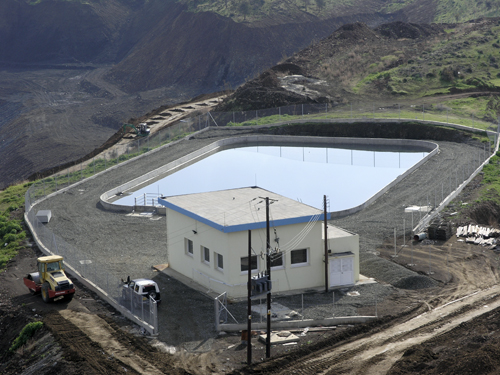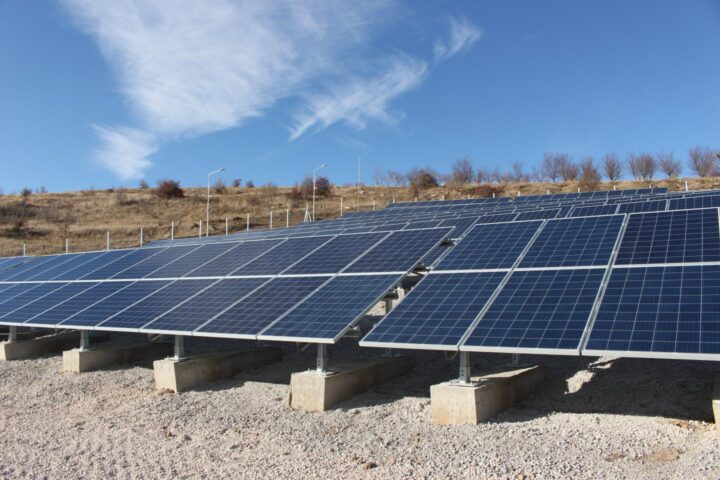Strange as it may seem, the sufficient amount of water impacts the demand and prices of real estate, especially from foreigners who have a choice of country and yet decide to move to Cyprus.
Until recently, this market translated to around €2 bln a year and employed thousands of people working as professional staff and artisans, a trend increasing in recent years mainly due to foreign interest.
The recent protest of foreign residents in the village of Tala in Paphos and the warnings by various tour operators on the issue of water indicate the problem, not so much for the little water, but the effects on the real estate market.
We have seen some rain that, along with the existing desalination plants, has reduced the water supply shortage, while there is growing interest in the use of dams for sports, picnic areas and nature activities.
From the point of view of some political parties and even Parliament on the issue of desalination, it is that no one is to blame for the lack of planning or high contract costs and that only God is to blame because it did not rain!
What is needed is a solution to the problem.
Having experience in construction, we believe the following measures will help since water scarcity is rising in this part of the world and needs better management.
Here are a few pointers:
- Before securing a building permit, each new building should submit a water-saving plan, such as water recycling, new technology, etc. As there is a provision for energy saving, there must be a requirement for water-saving.
- Prohibit the introduction and use of toilets with only one water stop – Allow only those two-stage flushing toilets, saving thousands of tons of water, especially in-office use.
- All swimming pools must be covered during off-hours. For example, a small pool 4m x 8m with a depth of 1.50m contains 48 cm with water evaporation on average reaching 50% every 12 months. Considering the thousands of pools in Cyprus, you can imagine the economic savings and the electricity saving.
- To have a policy of increasing prices, after 1 tonne of water per day per household or maximum consumption of 30 tonnes per month for four people. After that, increase the charge to double. Drilling a water borehole should now be required for plots over 1000 sq.m.
- During the construction phase of buildings, the spraying of slabs should not be done using drinking water, nor the use for the preparation of concrete, but using water from boreholes, from tankers or as older builders used to do, keeping reused water in barrels.
- Study the different types of washing machines, dishwashers, and dryers, and exclude those that use water beyond a specified amount.
- For golf courses, I favour the creation of desalination by the state to be paid for by the entrepreneurs. Regardless of what one thinks about these projects, this measure is required since they help the Cypriot economy. Furthermore, sewage water treatment and reuse are common in golf courses overseas, so why not here?
- To be assigned with some “private policing” for water use, where inspectors of the local authorities check the strict implementation of the consumption policy (washing of sidewalks, cars, terraces). But, as the system is today, it is impossible to police even a small percentage of households.
The lack of water is one of the most serious issues in Cyprus, and in theory, we are sure that everyone agrees, but can this be put into practice?
The environmentalists say they were justified (because they were against desalination); the previous government says it was justified because it contributed to the execution of the desalination works, and the Parliament did not approve it.
I am sure that Parliament will tell us that it was justified because it executed the choice of its voters.
In contrast, for one of our projects in Crete (Heraklion), we proposed constructing a small desalination system to supply 500 tonnes per day.
The local Mayor said: “We will provide you with coastal municipal land for free to carry out the project and offer your own needs 500 tonnes; we will expect 200 tonnes of water per day for use by the municipality.”
The contract has already been assigned to a Cypriot company.
We are regarded as benefactors of the area (unlike the Larnaca municipal council ten years ago that sued the government for constructing the desalination plant).
As an alternative, I hear theories about replacing water pipes (the cost is huge, and the execution time is 5-8 years) when the necessity is today.
By Antonis Loizou – Real Estate Valuer, Real Estate Agent & Property Consultant










